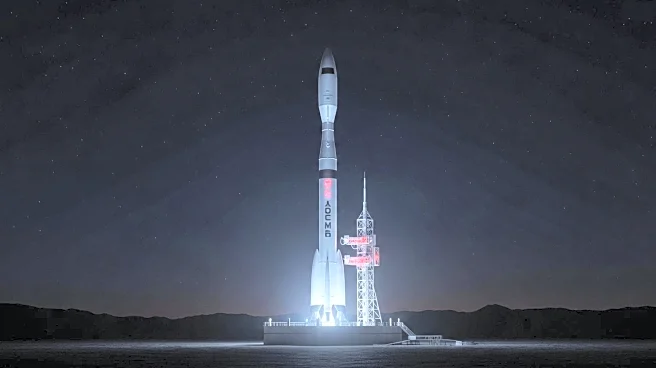What is the story about?
What's Happening?
NASA has increasingly relied on commercial partnerships, particularly with SpaceX, to manage its spacecraft and mission launches. This strategy was intended to reduce costs by outsourcing development to private companies. However, a recent paper published in the Journal of Spacecraft and Rockets suggests that these partnerships may not be as cost-effective as anticipated. The study analyzed 69 projects, including 22 built by NASA and 47 by industry, revealing that while commercial companies excel at producing low-cost, mass-manufactured spacecraft, they face similar inefficiencies as NASA in larger, high-impact missions. This comes at a time when NASA is facing severe budget cuts and layoffs, threatening its ambitious projects like the Artemis missions to the Moon.
Why It's Important?
The findings of the study have significant implications for NASA's future operations and budget allocations. As the agency grapples with financial constraints, the cost-effectiveness of outsourcing to private companies is under scrutiny. If commercial partnerships do not offer substantial savings, NASA may need to reconsider its strategy, especially for flagship missions that are critical to its scientific goals. The private space industry's growth contrasts with NASA's financial challenges, highlighting a potential shift in how space exploration is conducted. Stakeholders in the space industry, including companies like SpaceX, Blue Origin, and Boeing, may face increased pressure to demonstrate value and efficiency in their collaborations with NASA.
What's Next?
NASA may need to reassess its reliance on commercial partners for future missions, particularly those that are high-impact and require specialized capabilities. The agency could explore a hybrid approach, combining in-house development with selective outsourcing to optimize costs and efficiency. As budget cuts continue, NASA's ability to maintain its core missions, including the Artemis program, will depend on strategic decisions regarding partnerships and resource allocation. The findings may also prompt discussions within the space industry about improving efficiency and cost-effectiveness in collaboration with government agencies.
Beyond the Headlines
The study raises broader questions about the role of private companies in public sector projects, especially in areas like space exploration where national interests and scientific advancements are at stake. Ethical considerations regarding the privatization of space missions and the potential impact on innovation and accessibility may emerge. Long-term, the findings could influence policy decisions on government-industry collaborations, shaping the future landscape of space exploration and technology development.















